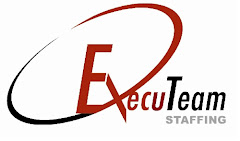Resumes, cover letters, online profiles, “elevator pitches” (I don't like that term), networking meetings and job interviews each provide an opportunity for you to convey the value you deliver to an employer and what is unique about you. It is your uniqueness that makes you memorable, and makes you the one who gets the job offer.
Most career advice stresses the importance of communicating your experience and skills. This focus is important but tells only half of your story.
Your skills and experience will get you an interview, and your uniqueness will get you hired. When companies choose between the best skilled applicant and the person who best fits in the organization, hiring managers consistently choose to hire the candidate that is the best “fit”. Fit is an over-used word spoken by interviewers to describe whether or not they feel you'll fit within the team. When they say you'll be a great fit, it means they like you and feel you can do the job. When they say you do not fit it means they don't like you. If they don't like you, they will not hire you. Fit speaks to your personality, work style and work values.
To be memorable you must prepare to convey your unique combination of qualities, and it is your unique qualities that communicate your “fit”. Let's discuss your “uniqueness inventory”.
Uniqueness Inventory
When asked to describe themselves people use phrases like “results focused”, “analytical”, “persistent”, “creative”, “strong attention to detail”, and “a good communicator”. These are some of the qualities that make you unique and affect the perception of your “fit” with the hiring organization.
First a note about saying you're a “quick learner”, don't use this phrase because every applicant says they are a quick learner. Saying this will not differentiate you from the crowd. Now back to your unique qualities.
Prepare to express your uniqueness by first responding to the following statement: “Describe yourself in three words (or three phrases)”. Now for each word or phrase, identify a situation when you demonstrate that quality. Your telling of these structured stories makes you memorable. If you are memorable, you get strong consideration and if you get strong consideration, you often get the offer.
For example: you might describe yourself as “results focused”. If this is true for you, identify a situation when you demonstrated this quality and prepare to tell this story during the job interview.
Many years ago a new graduate interviewed with eight (8) vice presidents at Fidelity Investments where I was a Director of Staffing. To get to the final interview round this new grad had competed against several hundred highly educated applicants from 14 different schools. Out of the 12 finalists, the interviewers agreed on only one person as their top choice. Their top choice was a young man from Babson College who told them a compelling life-story about his unyielding commitment to doing what he said he would do even when his life was threatened. I heard the story over ten years ago and it is still fresh in my mind. The story was riveting and memorable, but what was most important to the interviewers was what the story indicated about the candidate. The story provided evidence of his commitment, persistence and personal value to do the right thing. These qualities, while they were not listed on the position description as requirements, made all the difference for this candidate. He got the top job offer because he was qualified and communicated some of his unique qualities through the telling of structured stories.
Structured Story Telling
So what is the structure to use when telling these stories? You can use story telling to convey both your skills and unique qualities. Here is a simple structure to telling your stories to interviewers.
To make this easy to remember, use the structure Before, During, After. This sequence refers to what occurred before, during and after you took action. For example, you begin telling your structured story with Before you took action.
Before
You first describe the situation or the problem that existed Before you took action. Highlight the overall context of what you were trying to do or the problem you faced.
During
Second, describe what you specifically did During the time you were trying to achieve the desired results.
After
Third, discuss what happened After you took action. Highlight the results of your actions. Ands one more thing, if you want to make your story really compelling,
Learned
Conclude your story by discussing the things you Learned from this effort.
As described above, make a list of the experiences and qualities you want to present during the interview and for each dimension of you, write down the story you will tell to provide proof of your talents.
Remember, the job interview is the most important moment in your job search and in your career. While your resume may get you to the interview, it is your job interview skills that will secure the job offer. Preparation and practice make all the difference in your performance, because the most qualified person rarely gets the job. It's the person who interviews the best who wins the job offer.
Good luck on your next interview, You're going to be awesome!
- Michael R. Neece, CEO
Interview Mastery is the Internet's most widely used job interview prep program in the world used by job seekers in 70+ countries and 100+ colleges and regional career centers.
www.interviewmastery.com
From www.net-temps.com
Thursday, March 25, 2010
Subscribe to:
Post Comments (Atom)





No comments:
Post a Comment